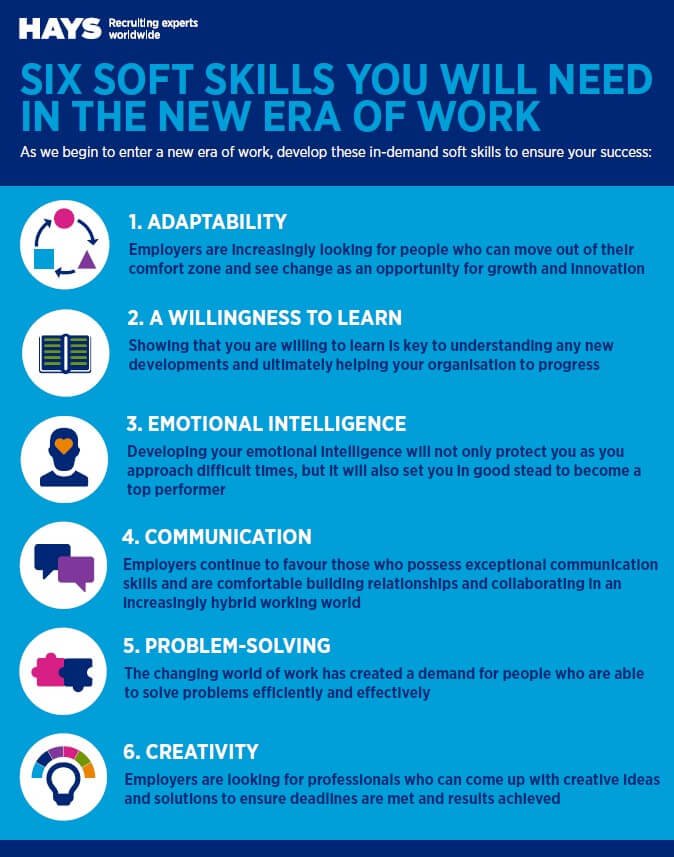The COVID-19 crisis has brought about overnight change and disruption to the world of work. Of course, some of these changes were bubbling away in the background in the pre-crisis world, but these have now been accelerated – alongside a multitude of completely new changes. Employers, therefore, are increasingly looking for professionals who have the soft skills required to succeed in the face of constant new challenges.
Soft skills are those that are more difficult to define and measure – unlike their opposite, hard skills, which are technical abilities like website design, computing, or writing. The way you behave and react to certain situations will be as a result of the soft skills you possess. For example, are you quick to adapt and able to solve problems? Or do you shy away in the face of change?
The soft skills you will need in order to succeed in the new future of work
One thing that is certain right now is that coronavirus is changing and re-shaping our working world – rapidly. You must therefore position and prepare yourself as best as possible as we begin to enter the next era of work, by building on or developing the below six soft skills that employers will be looking for in their future employees.
- Adaptability
- A willingness to learn
- Emotional intelligence (EQ)
- Interpersonal and communication skills
- Problem-solving skills
- Creativity
Once you feel more confident in each of these six areas, make sure you update your CV with these new and improved soft skills. Also, be ready to discuss and articulate how you have built these skills, providing examples of when you have demonstrated them and the quantifiable results you saw as a result.
Being ahead of the curve by developing these in-demand soft skills will help you stand out to employers, both now and in the future. After all, organisations are made up of people, and business is facilitated by interactions between people – meaning soft skills are only going to become even more important in the future of work.
This article was originally published on Hays.com



